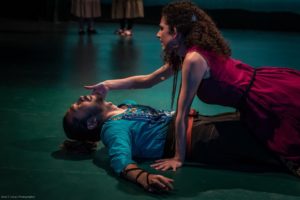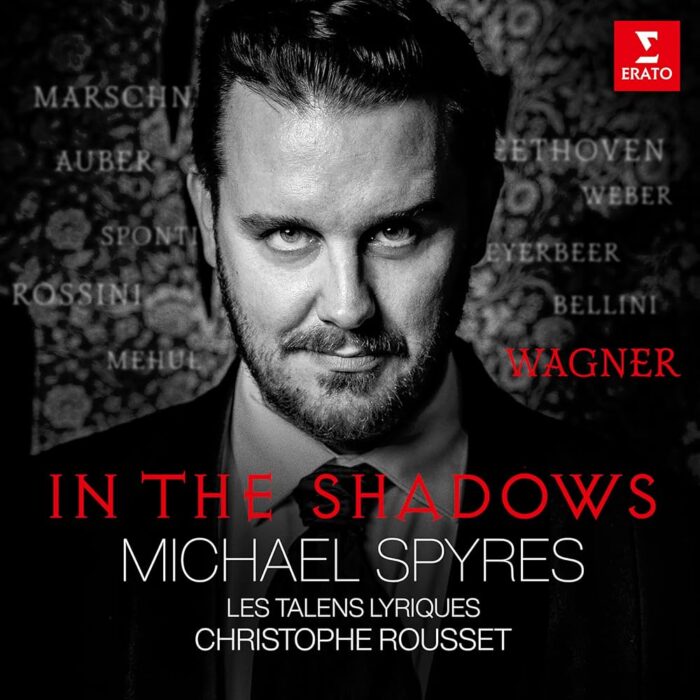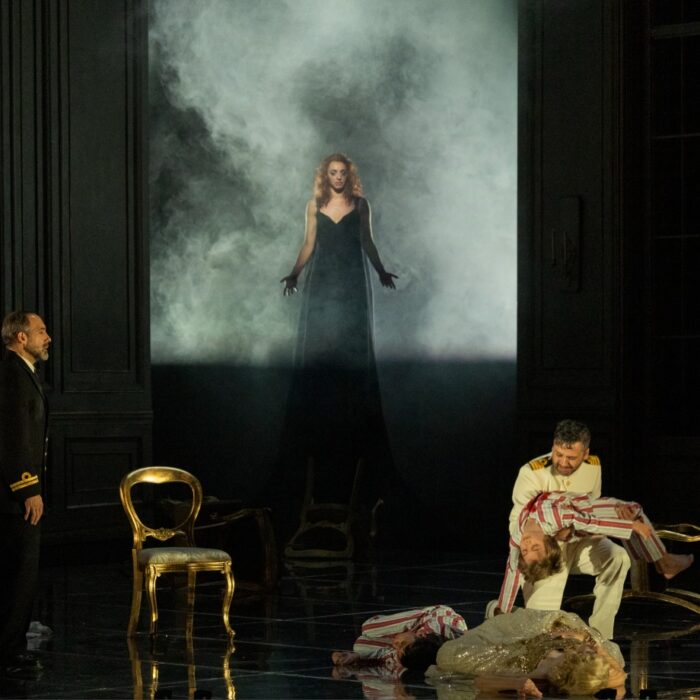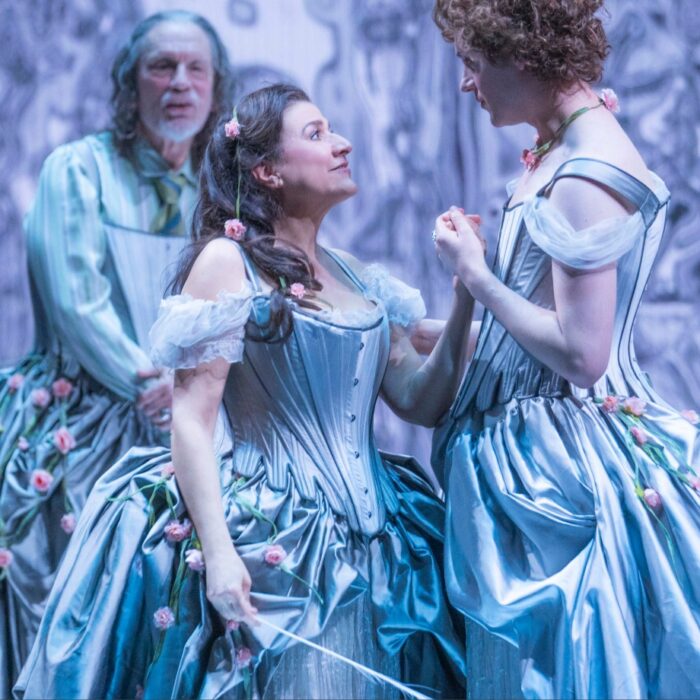
Dell’Arte Opera Ensemble 2019 Festival Review: La Liberazione di Ruggiero
A Ravishing Performance of The First Opera Composed By A Woman
By Chris Ruel“La Liberazione di Ruggiero dall’ isola d’ Alcina” (“The liberation of Ruggiero from the Isle of Alcina”) is an opera of firsts.
It was the first opera composed by a woman. It was the first opera performed outside of Italy. And, perhaps, it was the first opera in which the male-female roles are reversed with a strong female coming to the rescue of a beguiled prince and returning the misguided fellow to his true love.
Penned by Francesca Caccini—an accomplished singer in her own right—the opera demonstrated her ability to write for the voice. Librettist Ferdinando Saracinelli based his story on the poem “Orlando Furioso” by Ludovico Ariosto. Handel later used the same source material for his opera, “Alcina.”
Stylistically, the opera follows that of Monteverdi, as would make sense given “La liberazione” debuted on February 1625, less than 20 years after Monteverdi’s “L’Orfeo.” The opera’s premiere took place in Tuscany at the Villa del Poggio Imperiale, the grand-ducal palace of the Medici. At the time, Caccini was under the patronage of Maria Maddalena of Austria, the Regent Archduchess, and wife of Cosimo II de’ Medici, Grand Duke of Tuscany.
That “La Liberazione” survives at all is a testament to Caccini’s gifts as a composer. Dell’Arte’s production is the second time the opera has run in New York in the past year. The resurgence in the staging of works by female composers very much drives the dusting off of many great compositions hidden away by years of male-dominated artistic programming.
Voices From An Island
“La liberazione” fit perfectly within Dell’Arte’s 2019 festival theme of “Voices from the Tower,” with two strong female characters as the focal point of the story. According to “The New York Time’s” article calling out the November 2018 staging by the Boston Early Music Festival at the Morgan Library & Museum’s Gilder Lehrman Hall, the Grand Duchess, and her contemporary Christine of Lorraine, “pushed for confident, righteous female protagonists.”
Written to entertain the visiting Prince Władysław of Poland during the Carnival of 1625, the opera opens with an overture full of beautiful dance as a Neptune—sung by baritone Brian J. Alvarado in the August 17 performance—begins to tell the tale of the knight Ruggiero who is held captive on an island of love. The lush paradise in which Ruggiero finds himself is filled with trees—trees the evil sorceress Alcina has created by transforming knights into plants once she has grown tired of their love.
Dell’Arte’s island set was wonderfully sparse. The only decoration was flowing vines drifting down from a balustrade. The various characters would emerge from the vines, and the effect was beautiful in its simplicity. The dancing within the Dell’Arte production was entrancing. The use of gauzy, colorful, loose fabric added to the gracefulness of the movement. The choreography gave the entire production an ethereal and magical essence.
Heroines
The character of the good sorceress Melissa, perhaps the first super-heroine of opera sung by mezzo-soprano Stephanie Feigenbaum, is sent to Alcina’s island to rescue the love-struck Ruggiero. Her mission is to return him to his true love, Princess Bradamante, a character never seen in the opera.
Feigenbaum’s Melissa was a thrill to watch as she strode confidently about the stage, resolute in her mission, stealthy in her plans and brave in action against Alcina. Feigenbaum’s performance was strong, reflecting the heroic nature of her character.
Alcina, played by soprano Merav Eldan, was charmingly evil. She switched quickly and convincingly between issuing threats one moment and coos of love the next.
Her expressions were priceless, and her dialogues with Ruggiero were laden with sexuality. The love scene in which the two engage was a magnificent, sensual ballet.
A Standout Ruggiero & Others
The standout performance of the evening belonged to tenor Nobuki Momma; the clarion voiced tenor at the center of the story. Ruggiero’s pining after Alcina was sung in an over-the-top heart-rending manner fitting for the comedic nature of the opera. Momma was fun to watch as he wavered between lust for Alcina’s sensual paradise and his determination to escape the island once Melissa set his priorities straight.
In the climactic scene in this short 75-minute production, Melissa releases the imprisoned knights from their curse. The sentiments were touching with Feigenbaum’s slow magician’s movements producing some the more poignant moments in the opera.
Mezzo-soprano Micaela Aldridge had a strong, if brief, time on stage as Oreste, warning Alcina that the sorceress’ power has been broken and that Ruggiero is on his way armed for battle. Aldridge was strong in the middle-range of her voice. When called to climb the register, she did so with evenness, and not by force.
The ensemble chorus sang wonderfully tight harmonies, particularly in the final scene in which the knights are reunited with their true loves in a joyous, full-throated song of happiness while Ruggiero orchestra consisting of lutes, harpsichord, three violins, and gamba was superb.
At its core, “La Liberazione” is a morality play with a feminist twist: men should remain faithful to their loves, passions should be kept in check, and nothing should be taken at face value—paradise isn’t always as it appears, and may come at a significant cost to those who seek it.
Dell’Arte’s decision to resurrect this gem from relative obscurity was a nice counterpoint to the more contemporary, but equally marvelous fare, offered by its Voices from the Tower 2019 Festival.



